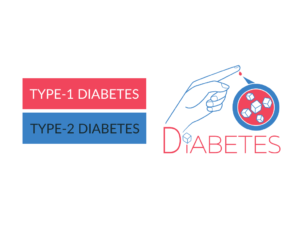What is Gastric Bypass?
Gastric bypass, also known as Roux-en-Y gastric bypass (RYGB), is a surgical procedure that helps individuals with severe obesity to lose weight. It involves creating a small stomach pouch and bypassing a portion of the small intestine. This restricts the amount of food that can be consumed and reduces the absorption of nutrients, resulting in weight loss.
Examples of Gastric Bypass
1. Roux-en-Y Gastric Bypass: It is the most common type of gastric bypass surgery, where a small pouch is created by stapling the upper stomach and connecting it to the small intestine.
2. Mini Gastric Bypass: This procedure involves creating a longer narrow tube of the stomach and connecting it directly to the small intestine.
What is Gastric Sleeve?
Gastric sleeve, also known as sleeve gastrectomy, is a surgical weight loss procedure that involves removing a significant portion of the stomach. The remaining portion of the stomach is shaped into a sleeve-like structure, reducing its size. This limits the amount of food that can be consumed and helps in weight loss.
Examples of Gastric Sleeve
1. Laparoscopic Sleeve Gastrectomy: It is the most common technique for gastric sleeve surgery. The surgery is performed using small incisions and a laparoscope to remove a part of the stomach.
2. Vertical Sleeve Gastrectomy: This technique involves removing approximately 85% of the stomach, leaving a smaller sleeve-shaped stomach.
Differences between Gastric Bypass and Gastric Sleeve
| Difference Area | Gastric Bypass | Gastric Sleeve |
|---|---|---|
| Procedure | Involves creating a small stomach pouch and bypassing a portion of the small intestine. | Involves removing a significant portion of the stomach and reshaping it into a sleeve-like structure. |
| Surgical Complexity | Considered more complex due to intestinal rearrangement. | Considered less complex as no intestinal rearrangement is involved. |
| Weight Loss | Usually results in greater weight loss compared to gastric sleeve. | Results in substantial weight loss, but generally not as dramatic as gastric bypass. |
| Food Intolerance | May cause intolerance to certain foods due to reduced absorption capacity. | Less likely to cause food intolerances since it doesn’t bypass the intestines. |
| Recovery Time | Typically requires a longer recovery period due to the complexity of the procedure. | Generally has a shorter recovery time as it is less invasive. |
| Long-Term Nutritional Issues | May require lifelong vitamin and mineral supplementation due to reduced nutrient absorption. | May also require vitamin and mineral supplementation, but to a lesser extent than gastric bypass. |
| Diabetes Remission | Has a higher chance of achieving diabetes remission compared to gastric sleeve. | Can also help in diabetes remission, but not as consistently as gastric bypass. |
| Revision Surgery | Generally more challenging to perform revision surgery due to prior intestinal rearrangement. | Allows for easier revision surgery if needed in the future. |
| Risks of Complications | May have a slightly higher risk of complications including internal hernias and dumping syndrome. | Considered to have a lower risk of complications compared to gastric bypass. |
| Insurance Coverage | Often covered by insurance as it is considered a standard treatment option for obesity. | Increasingly covered by insurance as its effectiveness has been proven over time. |
Conclusion
In summary, both gastric bypass and gastric sleeve are effective weight loss surgeries, but they differ in terms of the procedure, complexity, weight loss results, food intolerance, recovery time, long-term nutritional issues, diabetes remission, revision surgery, risks of complications, and insurance coverage. It is important to consult with a healthcare professional to determine the most suitable option based on individual needs and circumstances.
Knowledge Check
1. Which surgery involves creating a small stomach pouch and bypassing a portion of the small intestine?
Answer: Gastric Bypass.
2. Which surgery involves removing a significant portion of the stomach and reshaping it into a sleeve-like structure?
Answer: Gastric Sleeve.
3. Which surgery results in greater weight loss?
Answer: Gastric Bypass.
4. Which surgery is considered less complex?
Answer: Gastric Sleeve.
5. Which surgery may cause intolerance to certain foods due to reduced absorption capacity?
Answer: Gastric Bypass.
6. Which surgery typically has a longer recovery time?
Answer: Gastric Bypass.
7. Which surgery requires lifelong vitamin and mineral supplementation?
Answer: Both Gastric Bypass and Gastric Sleeve.
8. Which surgery has a higher chance of achieving diabetes remission?
Answer: Gastric Bypass.
9. Which surgery allows for easier revision surgery if needed in the future?
Answer: Gastric Sleeve.
10. Which surgery has a lower risk of complications?
Answer: Gastric Sleeve.
Related Topics
– Pros and Cons of Gastric Bypass Surgery
– Long-Term Effects and Success Rates of Gastric Sleeve Surgery
– Choosing the Right Weight Loss Surgery: Gastric Bypass vs. Gastric Sleeve


